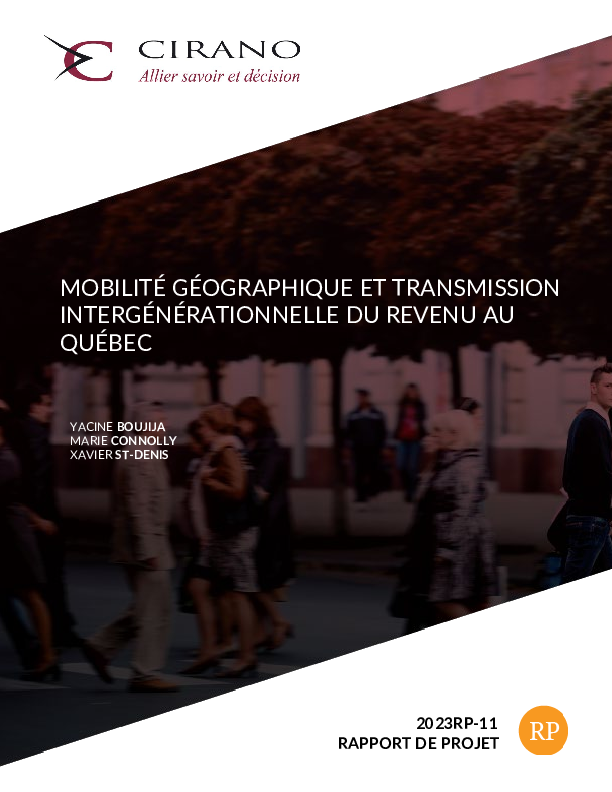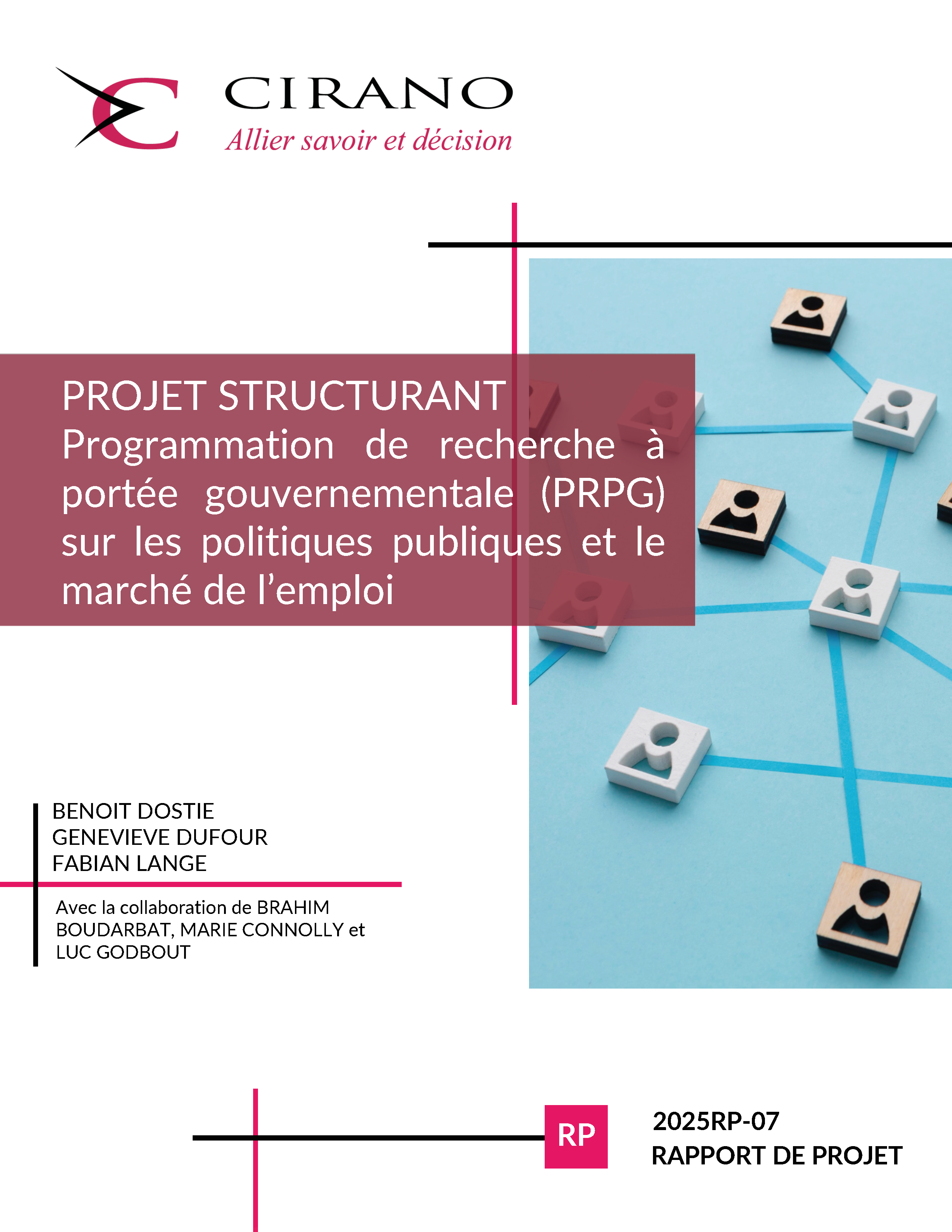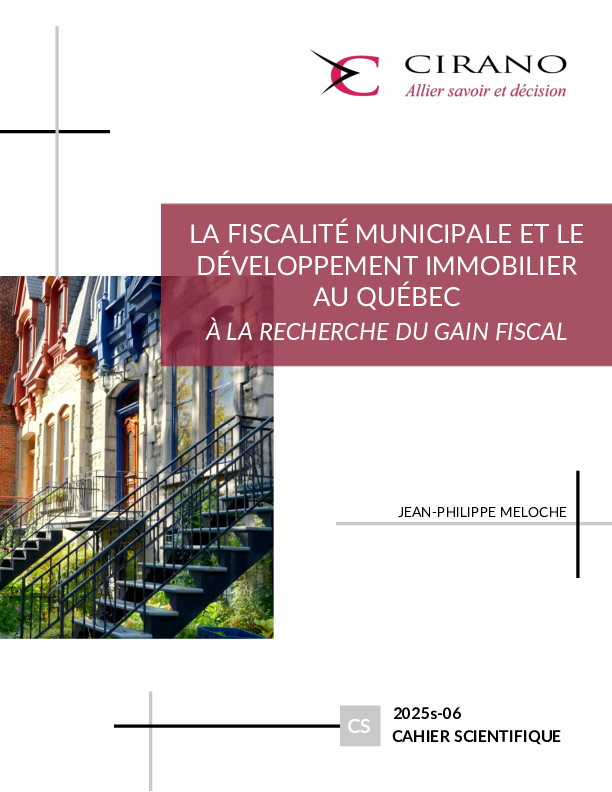Mobilité géographique et transmission intergénérationnelle du revenu au Québec
→ Presentation of study analyses and results on October 30, 2023
Young people who grow up in a less privileged socioeconomic environment are more likely to remain at the bottom of the income distribution once they reach adulthood. This phenomenon is one of the manifestations of the reproduction of inequalities from one generation to the next, or what is known as the intergenerational transmission of income. Despite the implementation in Quebec of initiatives to promote equality of opportunity, the situation has deteriorated over the course of the late 20th century.
We know that access to education is a key factor in social mobility. In this study, the authors look at the question from a different angle, examining the contribution of geographic mobility to the intergenerational transmission of income in Quebec. The study uses data from Statistics Canada's Intergenerational Income Database (IID) to estimate the link between geographic mobility and socioeconomic mobility. Four cohorts of young people are tracked over time: those born between 1967 and 1970, between 1972 and 1975, between 1977 and 1980, and between 1982 and 1985. This represents a sample of almost 1.4 million observations.
The authors show that the deterioration of social mobility in Quebec is mainly the result of two phenomena: (1) a deterioration in the socioeconomic status of young people living outside major urban centres at age 16 and having grown up in a family at the bottom of the income distribution, combined with (2) an improvement in the situation of young people from the same regions, but having grown up in a family at the top of the parental income distribution. This study contributes to the knowledge base and suggests that policies supporting geographic mobility could help increase social mobility in Quebec.




